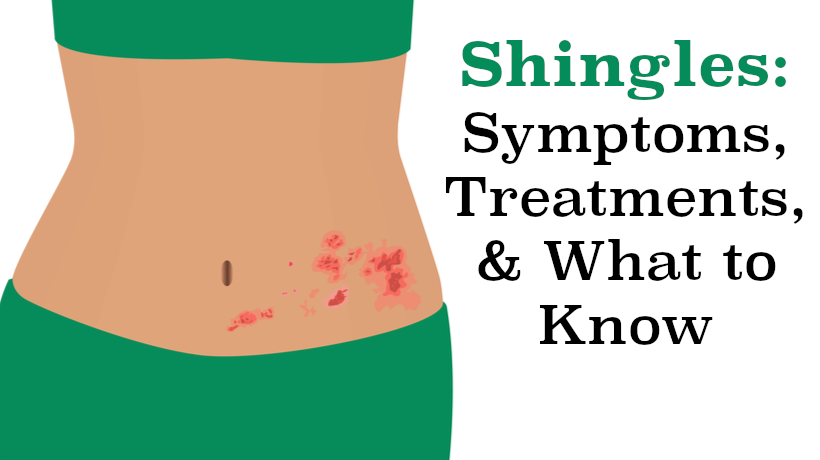The same virus that causes chickenpox causes shingles; varicella zoster virus (VZV). The chickenpox virus can reactivate years or even decades later, but it’s not understood why. When this happens, a person will develop shingles. It can be a painful condition with severe complications so recognizing symptoms is critical:
Who gets shingles?
The Centers for Disease Control and Prevention (CDC) state that almost 1 in 3 people in the US will develop shingles in their lifetime. But some people are more likely to develop shingles than others.
It is that half of all cases of shingles occur in people aged 60 years and older.
Other groups prone to developing shingles include:
- people with HIV
- people undergoing cancer treatments
- people who have had organ transplants
- people experiencing a lot of stress
The first symptoms of shingles are usually pain and burning. The pain is usually on one side of the body and occurs in small patches. A red rash typically follows.
Characteristics of rashes include:
- red patches
- fluid-filled blisters that break easily
- wraps around from the spine to the torso
- on the face and ears
- itching
Early symptoms may include:
- tiredness
- aching muscles
- headaches
- nausea
- a general feeling of being unwell
- fever
- fatigue
- muscle weakness
Rare and serious complications of shingles include:
- pain or rash that involves the eye, which should be treated immediately in order to avoid permanent eye damage
- loss of hearing or intense pain in one ear, dizziness, or loss of taste on your tongue, which can be symptoms of Ramsay Hunt syndrome and also requires immediate treatment
- bacterial infections, which you may have if your skin becomes red, swollen, and warm to the touch
Treatments include:
- Antiviral drugs such as acyclovir (Zovirax), valacyclovir (Valtrex), or famciclovir (Famvir) can make symptoms less severe and shorten the length of the illness if taken early.
- Pain relievers can often lessen discomfort during a more advanced stage.
- Wet compresses, calamine lotion, and colloidal oatmeal baths can help reduce itching.
Prevention is better than treatment:
Childhood immunizations include a varicella vaccine to prevent chickenpox. The vaccine also helps to reduce the number of people who develop shingles later in life.
The CDC recommends the vaccination if you’re a healthy adult 50 years and older and whether you had chickenpox.
Source:



